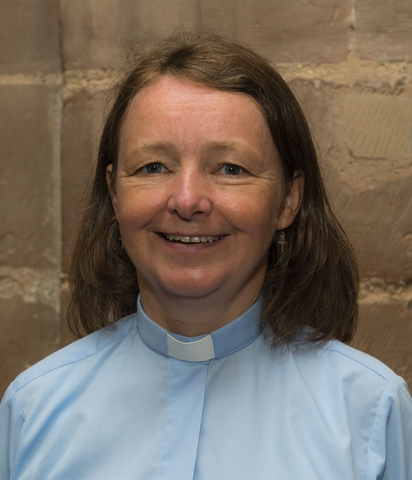
October News From The Clergy
21 Sep 2022 • From the Clergy
I am writing this letter on September 9th – the day on which I, like so many others, woke for the first time in my life to an England not ruled over by Queen Elizabeth 11. Our late queen gave us all a marvelous example of faithful duty and service. Such was her grace, dedication and charm that even many who have no enthusiasm for the monarchy as an institution, held Elizabeth as a person in high esteem and respect. Her passing marks the end of an era and many people will find it difficult to instantly and fully grasp the reality that this lady – mother, grandmother to a few, loved and admired by so many, head of state and Church, is no longer at the helm. To slightly misquote the future Queen Mary, speaking of the death of that other great queen, Victoria: “The thought of England without Queen Elizabeth is dreadful even to think of. God help us all!”1
The first real indication we had that the queen’s life was drawing to its close, was the statement, issued by Buckingham Palace at lunchtime on 8th, that her doctors were concerned for her health. So the warning which prepared us for what was to come, came from doctors, which makes it particularly fitting that the theme for the magazine is St Luke – “The beloved physician.”
As with so many of our saints, much of what is “known” about St Luke comes to us through tradition rather than solid facts.Luke was not one of the original twelve apostles, although he may well have been amongst the seventy disciples sent out by Jesus.2 He was almost certainly a Gentile, a Greek, probably born in Antioch; and his Gospel was exceptionally sympathetic towards Gentiles, women and others on the fringes of society. He is first mentioned in the letters of St Paul where he is described as Paul’s coworker and as the beloved physician. It is generally believed that Luke accompanied Paul on several of his missionary journeys. In his second letter to Timothy, Paul states, rather poignantly that: “Only Luke is with me.”3 From this we may assume that Luke was a man of firm loyalty and steadfastness.
“St Luke the evangelist” is credited with writing the third of the fourth gospels which, as already mentioned, is exceptionally sympathetic towards Gentiles, women and others on the fringes of society. It contains some of the New Testament’s best known – and best loved – stories found in none of the other gospel accounts. The visit of the shepherds to the infant Jesus and the parables of the good Samaritan and the prodigal son are amongst these unique accounts. These give us an impression of a man who was loyal, caring, compassionate and broad-minded. It is generally believed that Luke wrote this gospel in the early 80s or a little later, and that he settled in Greece where he died of old age.
It is also thanks to Luke that we know about the history of the early Christian Church. His second book – The Acts of the Apostles – takes us from the ascension to Pentecost, the growth and persecution of the early church and how, out of this persecution, the church spread to other parts of the world.
The emblem for St Luke is an ox – a universal beast of burden which fits with Luke’s emphasis on the universal inclusivity of Christ’s love and ministry. But the ox was also, in the ancient world, a symbol of strength and power. In an age without machinery, “the ox was the world’s most powerful engine”4 and the book of Proverbs acknowledges human dependance on this beast of burden when it states: Where there is no oxen there is no grain; abundant crops come by the strength of the ox5So Luke’s emblem reminds us of our total dependanceon Jesus who came to bear our burdens and without whom our lives are poor indeed.
St Luke is the Patron Saint of doctors and artists and his feast day is celebrated on October 18th.
The Collect for St Luke prays:
Almighty God,
You called Luke, the physician,
Whose praise is in the gospel,
To be an evangelist and physician of the soul;
By the grace of the Spirit, and by the wholesome medicine of the gospel,
Give your Church the same love and power to heal;
Through Jesus Christ your Son, our Lord,
Who is alive and reigns with you,
In the unity of the Holy Spirit,
One God, now and for ever. Amen.
1 The British Century Weidenfeld &Nicolson London. 1997
2 Britannica.com
32 Timothy 4,11
4 Four Gospels, One Jesus.SPCK 1994
5 Proverbs 14,4